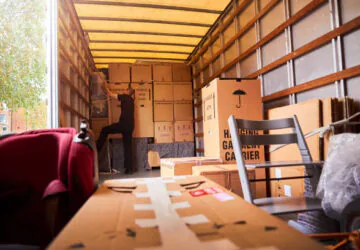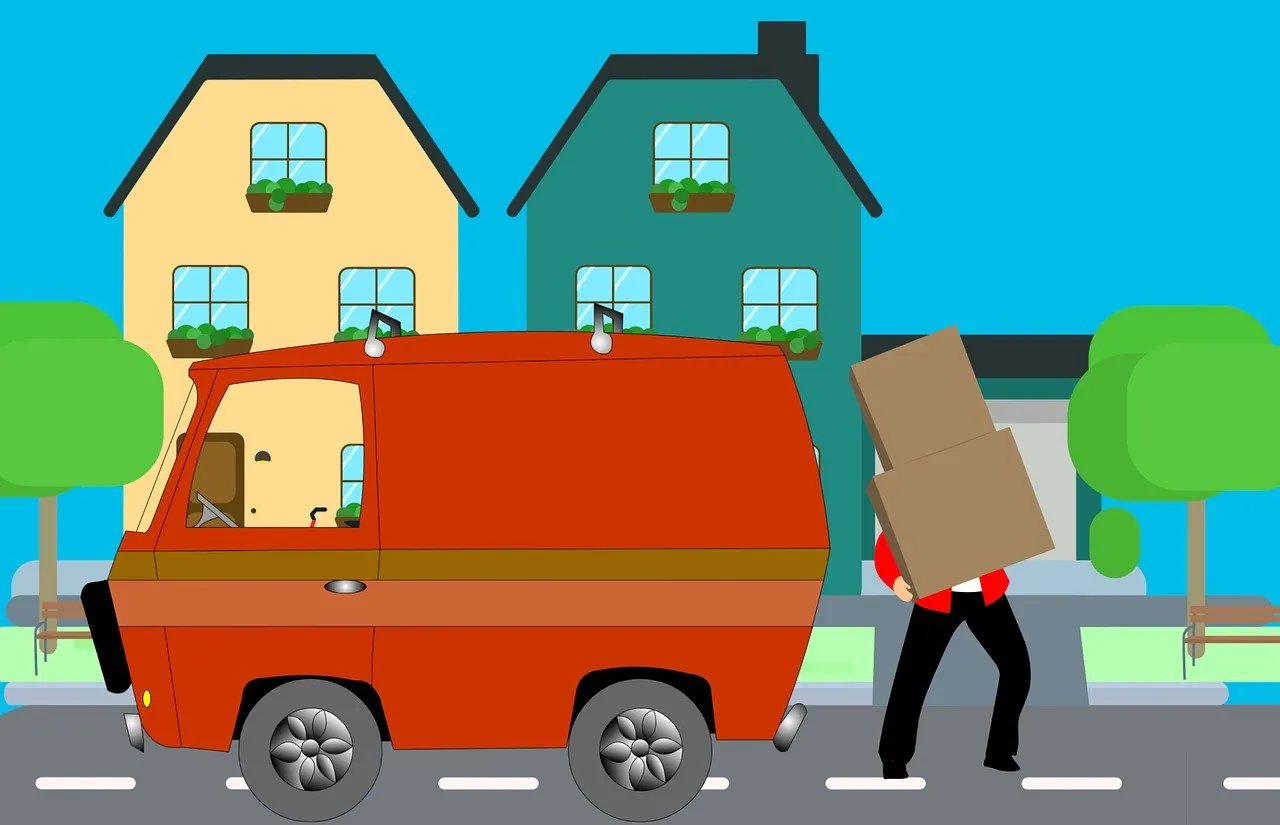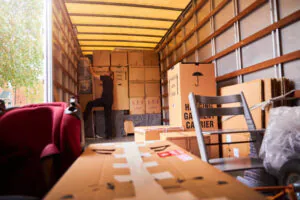Blog
15 tips on how to organize and carry out an apartment move with children
- sales
- March 18, 2024
- 8:55 pm
- No Comments
Moving to a new home is an important change in life that evokes a variety of feelings in people: joy, expectation of dramatic changes, indignation, excitement, and others. Moving with children is particularly challenging, as they are more sensitive to new environments than adults. Parting with friends, changing schools, the first nights in an unfamiliar new apartment – even for resilient and adaptable children, these and other moments are often too traumatic for the child’s psyche.
Children are very conservative and very attached to their place of residence. Therefore, getting used to a new apartment can be difficult and painful. It is possible that the child will throw a tantrum, eat and sleep poorly.
To minimize stress, tears, and other unpleasant situations, you need to think through all the nuances in advance, tell your children why you are changing your place of residence and when you plan to move, and tell them what interesting things await them in the new city. So spend some time preparing your child for the move and it will help you avoid many problems.
We offer you 15 tips that can help make moving with children more delicate, gentle and painless.
1. Be honest with your child
Moving should not come as a surprise to your child. As soon as you have clearly decided on the need to change your place of residence, you should immediately tell your child about it. You should talk in simple language that the child understands and tell them in detail about the reasons for the move and when you plan to move.
Even minor changes can cause fear and anxiety for a child. Therefore, you should have a frank conversation with your child as soon as possible. You can do this at home, for example, when the whole family is gathered around the table. You can also have a conversation during a walk.
The most important thing is that the child assimilates the information you provide and, long before the move, not only knows about all your plans, but is directly involved in the process. This will make the move easier, help avoid worries and unpleasant emotions.
2. Involve children in the move
It will be easier and less stressful to accept information about changing your place of residence if you involve your child in the planning of the move. For example, when looking for a place to live, you can look at photos of houses or apartments for relocation on the Internet with your child, or take a tour of the new city. Ask how the child imagines his or her new room. If you are buying a house, your child may be interested in a swimming pool in the yard or a comfortable toy house on a tree. But always count on your capabilities. Do not promise what you cannot do. This will lead to disappointment due to unrealizable promises.
You also need to involve children in the organization of the move, the process of sorting and packing things. Allow them to pack their books, toys, and other items into a box on their own. Give them the right to pack their own things, decide what they will need on the road and pack a travel backpack. In addition to making your child feel like a full participant in the move, the process of involvement will help them gain organization and other important life skills.
3. Unleash your children’s inner potential
No matter how old your child is, everyone will be happy to have the opportunity to decide how the new room will look like. Ask them how to decorate the room, what color to paint the walls, how to arrange the furniture, where to hang a picture, what things to take from the old place and what to buy from the new one. A few of the simplest decisions made by a child will help him or her become more confident.
Invite your child to try to draw a picture of the future room and create a design. When choosing new furniture, be sure to take into account the child’s wishes and preferences. This is a great way to create a comfortable environment for your child in the new home, to speed up and soften the period of getting used to the new environment and new life.
4. Organize a joint excursion to the new city
Find time to travel with your child to the city you plan to move to. Make a list of places that you think would be interesting for your child. Explore the area where the new home is located together. Perhaps there are sports grounds, playgrounds, or other places nearby that will be interesting to children according to their interests. Ask where the nearest cafe with their favorite sweets or ice cream is located. Learn the way to the new school or kindergarten. If you’ve already decided on a new school, it’s a good idea to go there, talk to the teachers and get to know the children. Your child may make new friends and look forward to the move.
The more information your child has, the easier he or she will be able to accept the change of scenery and feel even better than in the old apartment.
Join a club
The best way to adapt to a new environment as quickly as possible is to find a club that interests your children and you and join it.
Here are some interesting options to consider.
Creativity
If your child likes to draw and is interested in art, you should look for a special club for them. For music and singing lovers, you can also find activities that match their interests. Doing something you love will minimize the fear of a new life, help you meet new friends, and have fun.
Volunteer help
Moved to a new city with a child or teenage children? Offer to volunteer your time. Perhaps your son or daughter will enjoy participating in a neighborhood cleanup or doing other work with like-minded people. This is a combination of physical activity, joyful emotions and the opportunity to meet new people.
Sports activities
For energetic kids, we suggest checking out the YMCA or any local sports center. If there is a sports field near your home, be sure to find some free time to play soccer or basketball with your children. Joint activities help to expend energy, and they also bring them closer together.
No matter what your child is interested in, if you try, you can find a hobby for everyone and help them discover their potential. Various extracurricular activities should not be ignored either, as they are a good way to show their abilities, meet new people, and find friends with similar interests.
5. Check how your children perceive the move
Is the move difficult for children? Will the child quickly get used to the new city? These are the most common questions among those who plan to move to another state or city for permanent residence.
Any change is difficult, and this applies to both children and adults. A person leaves the old environment, loyal friends. This causes anxiety and uncertainty – what awaits in the new city.
Therefore, immediately upon arrival at the new apartment, you should ask as often as possible how the child feels, whether he or she is comfortable in the new home. Perhaps you should leave the unpacking of several boxes for later, and spend this time exploring the new area with your children.
In each case, there are different reasons for moving, and different situations arise accordingly. For example, when you move to unite your families, you need to take it very seriously. It is not known how the child’s relationship with the new family members will develop. Even if they have met before and spent time together, living together can cause stress for the child.
The appearance of a new person in the apartment is always accompanied by certain emotions, and it is very important to know how the child perceives this situation. This doesn’t mean that you should abandon the move. But when a child knows that their opinion is important to their parents, they trust them and feel safe. This helps to overcome any difficulties.
If the child is painful about moving, then plan a trip from the new city to the old one and instead of saying sad “goodbye” to everyone, say “see you later.” The child will know that he or she will return here, will be less sad and look forward to a pleasant trip.
6. Establish communication with other parents
This tip is useful for both your children and you. Get to know the parents of the other children with whom your son or daughter is studying. You can also use social media to find people you know. Ask about local parent groups. Also, find out where there are playgroups or weekly storytime for children. This is not just an interesting way to spend your free time, but also a great opportunity to make new friends, quickly settle in, and feel confident.
7. A friendly party
When you have unpacked and settled into your new home, it is worth organizing a housewarming party. Invite your new friends and your children’s new friends to the party. Be sure to ask your children to help plan the party, choose entertainment, create a menu, and prepare and distribute invitations to all the guests. This will be the end of the move and the beginning of a new happy life.
8. Visit the past
Plan a visit to the city you moved from. Even if you have sold your old apartment, you probably have friends or family in the city with whom you can stay for a few days. It is best to plan a trip during the holidays, for example, on Christmas or the birthday of your loved ones or friends.
Communication with old friends should be maintained, and periodic meetings will allow you to always have hope that when you leave, you are not saying goodbye forever, but only for a while.
Remember. No correspondence or video sessions via messengers can replace “live” communication. So think about visiting old friends.
9. Allow enough time to prepare for the move
You don’t need to leave packing and packing your belongings to the last few days. In a hurry, you run the risk of forgetting important things, not packing all your belongings, and making other mistakes. You should also keep in mind that your friends and acquaintances will surely come to say goodbye. So it’s worth organizing a farewell party yourself and inviting everyone you think is worthwhile.
It is possible that at the time of the farewell party your child will have doubts or even stress about moving. Therefore, you should plan such a meeting at least a week before departure. This time will help them adapt and adjust to the move.
As for packing things for transportation, pay attention to PODS portable containers. They can be installed right next to your home and you can load boxes with your belongings without haste. On a certain date, the containers will be picked up and transported to the new place of residence. The cost of container transportation includes a month of free storage in a secure warehouse. This is beneficial if you want to simply send your belongings and move to a new city by car, stopping for rest and excursions along the way, and turn your move into an exciting journey.
Using PODS containers, you can pack your belongings on your own schedule and have full access to them throughout the move.
To take everything into account and not to forget about the main thing, make lists for a quality moving organization. In the first one, make a list of all the things that need to be transported, and in the second one, a list of things that need to be solved as part of the move. It will take an average of 15-20 minutes, but it will help you prepare for the move without mistakes.
10. Do not hesitate to ask for help
Moving is a complex process that involves many nuances. It is important not to forget anything and to take into account the smallest details. And if you are moving with children, it requires even more energy and responsibility. Therefore, it is very advisable to ask relatives or friends to help with packing and loading things. There is nothing to be ashamed of. On the contrary, while your friends are helping you, you have free time to deal with more important issues.
Make a list of things you will be transporting in advance. Calculate how many boxes you need for packing, how much wrapping paper and packing tape to buy. It is difficult to plan everything on your own. Therefore, the help of friends will never be superfluous and will make the preparation for the move orderly, calm and comfortable.
11. Make the children’s room a priority
Even if a child is happy to move, it is always stressful for him or her. You have to leave a fully formed world and go into the absolute unknown. Quite often these questions arise in the mind of a teenager. To reduce unpleasant associations, you need to make the children’s room a priority. How exactly to do this? It is very simple. Pack children’s things last and unpack them first in the new apartment. This approach will help the child spend more time in the familiar environment of the old room and get used to the new home faster.
12. Visit the library
The feelings that a child can experience after moving are very diverse. Therefore, during the adaptation period, you need to learn as much as possible about the new city. The best way to do this is through the local library.
You need to buy a library card for your child with a first and last name, which will become an official document of identity. Then you can start exploring the area. A librarian will be a good assistant in this matter. He or she will be able to tell you the history of the city’s founding and who exactly founded it. They will tell you how many people have come here from other cities for permanent residence over the past year or decade.
If you moved in the summer, when schools are on vacation, try to make a schedule that will keep the whole day clearly planned and leave your child no time for sad memories and thoughts.
Consider your child’s interests when making a schedule. For example, suggest a summer reading program or ask them to draw a new city as they see it. Take care of small but pleasant prizes for each drawing or other project. This will be a significant incentive for self-realization.
For children who are having a hard time moving and have difficulty adjusting to the new environment, ask the librarian to select a book about moving joyfully. In the process of reading, you can learn a lot of useful things – how other children adapted to their new life, what they did, how and where they found new friends.
13. Learn as much as you can about how to make the move comfortable
To make your move stress-free and hysterical, you need to learn as much as possible about planning and organizing the process. You will find a lot of useful tips on these issues in the PODS blog. There are many answers to common and rare questions.
The blog is worth checking out for family-friendly neighborhoods in the most popular cities. Even if you are not moving to any of these cities, there is a lot of useful information about finding a place to live, how to transport your belongings, and various nuances of moving with children.
We suggest you visit:
Neighborhoods in Chicago for a comfortable stay
Neighborhoods in Miami where new residents are always welcome
Neighborhoods in Los Angeles with dozens of housing offers and relocation planning
Neighborhoods in Seattle with a list of benefits of living in the area
Neighborhoods in New York that are friendly to newcomers
Thousand Oaks near Los Angeles, one of the best places for relocation and family living.
14. What is the best age for a child to move?
Pay attention and remember the main thing – there is no worst age for moving a child. Children of different ages may face different problems. For babies who are just learning to walk and say their first words, difficulties are accompanied by getting used to a new apartment.
Young men and teenagers are always sad to lose their friends. And frequent recollections of how much fun and good life was at the old place can lead to a child’s suddenly having unreasonable resentment, more frequent conflicts, poorer school performance, and difficulties with new friends due to aggressive behavior.
That is why it is so important to talk frankly with your child at the stage of planning the move and try to explain that it will be a good start to a new life for them. Sadness about losing contact with old friends is a natural feeling. But if you are attentive to your child’s feelings and share all possible situations with them, there will be much less stress and sadness.
Never forget that your role in your child’s psychological state is very important. Do your best to fill your child with positive emotions. Don’t make them forget everything old, but help them discover the best and most exciting things in the new city.
Never forget that your role in the child’s psychological state is very important. Do your best to fill your child with positive emotions. Don’t make them forget everything old, but help them discover the best and most exciting things in the new city.
Visit shops, cafes or restaurants, playgrounds, amusement parks, and other interesting places with your children. Even the most difficult situations can be turned into interesting hobbies if you approach problem solving correctly, do not be cunning in front of your child, and tell them honestly about everything and explain each action in detail.
What do professionals advise on the question of at what age is it best for a child to move?
Different experts have different opinions, there is no unanimity. First of all, it is not so much the age that should be taken into account as the characteristics of the child. While some children calmly accept the news of a move, others are overly sensitive to such changes. Younger children get used to a new house or apartment, new neighbors, and a new environment faster and easier.
Older children perceive changes differently. The process becomes more emotional, and children show apathy to the events around them. At the same time, they do not want to tell what exactly is bothering them, and negative emotions are increasingly accumulating.
In any case, always remember that for every child, moving is considered stressful in itself. Therefore, parents should pay maximum attention and care. This is the only way to cope with the adaptation period and minimize unpleasant situations.
15. Trust your instincts
At any age, moving is exciting, uncertain, and stressful. If you look at statistics, many experts say that moving is among the top five most stressful life events.
But who better than parents to know the preferences and moods of their children. Therefore, your main task is to help avoid negative moments. To do this, you should try to explain in detail that moving is not a pause in life, but one of its interesting and exciting stages.
Be sure to talk to your child about the future, imagine it only in a positive way. But even the most attentive parents can miss an important moment that will be a turning point for the child and can lead to panic.
If you are worried about your child’s unusual behavior, or if the always cheerful and sociable teenager spends too much time alone after the move and refuses to communicate, it is definitely time for a frank conversation. It’s up to you to decide how to start the conversation. Some people perceive information better during sports jogging, while others prefer the comfort of home and all they need is a wordless hug and a hug. Every child has his or her own feelings and emotions. Give them the opportunity and help them talk about them, not hoard them.
Because of their age, children are very adaptable. They adapt to new conditions quite easily, but at the same time, they have a hard time accepting new surroundings. Many perceive the outside world through their personal stories. And if this story (for example, the reason for moving) is not told by an adult, the child will invent it for himself or herself, but an imaginary child’s story can be much worse than the real one. So always be honest with your children, tell them about your plans in advance.
Together with your child in a new place, look for a social circle, attend interesting events. If you take a proper and comprehensive approach to organizing a move, you can carry out the process without emotional stress and worry.
Follow us
updates on new articles








